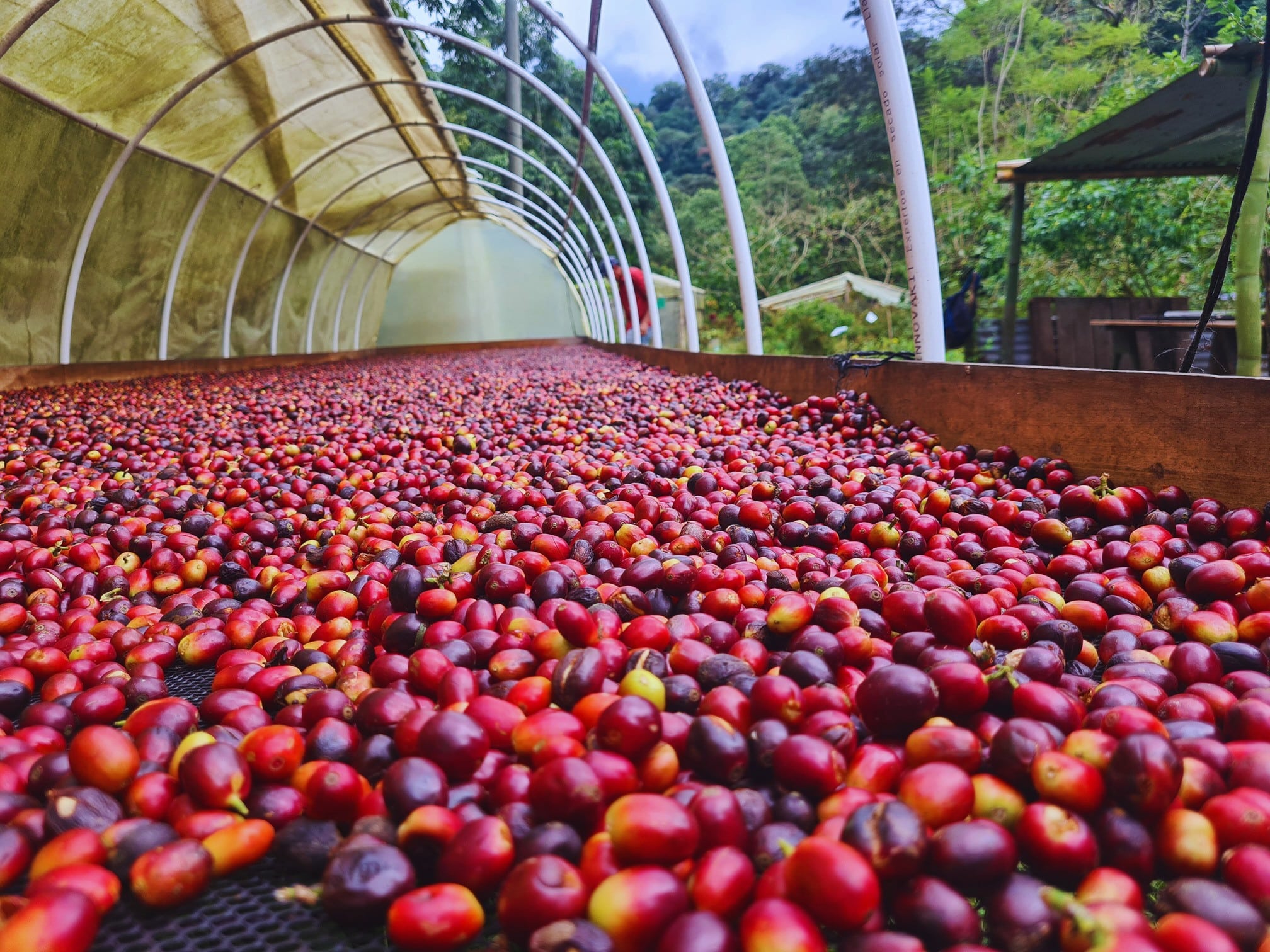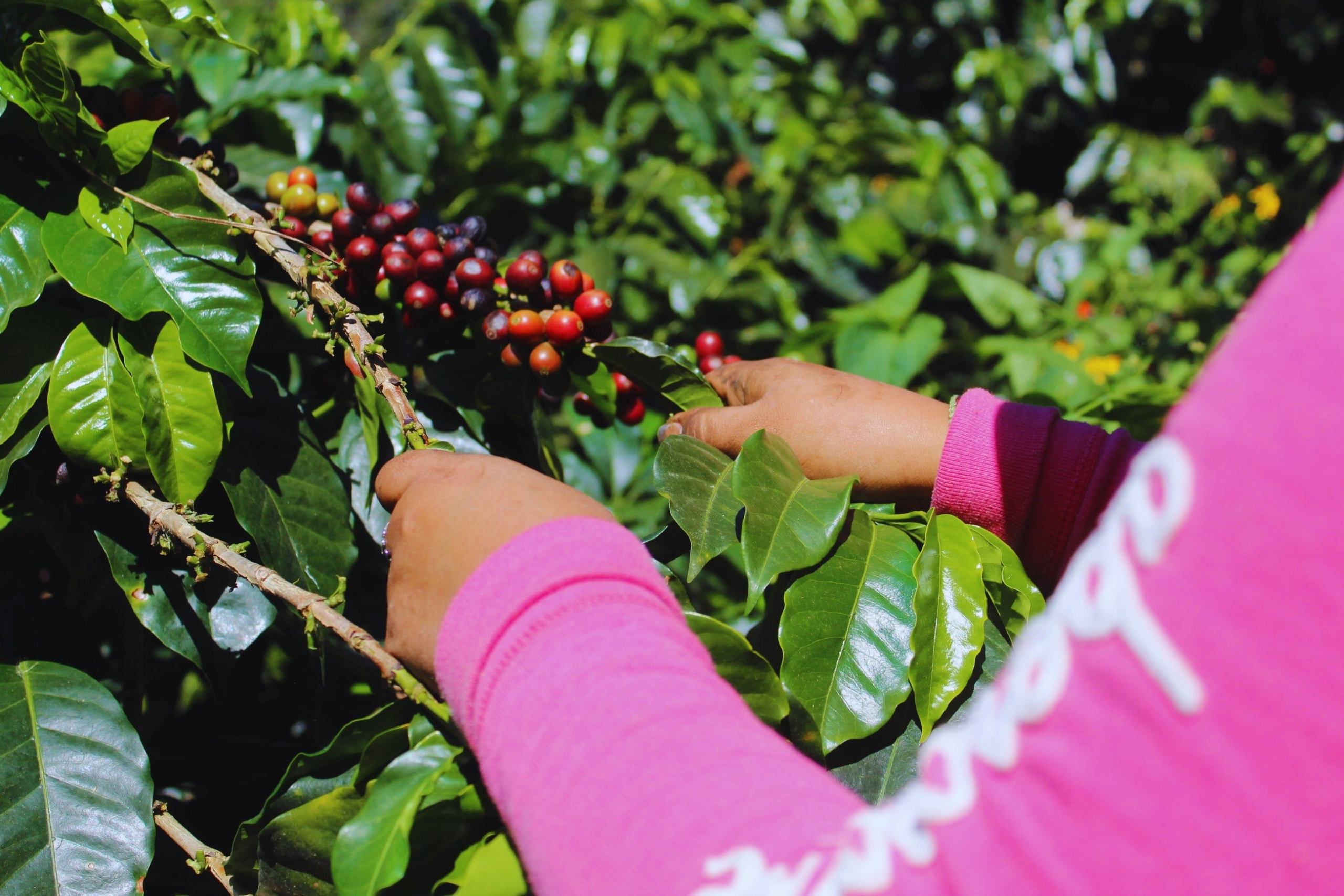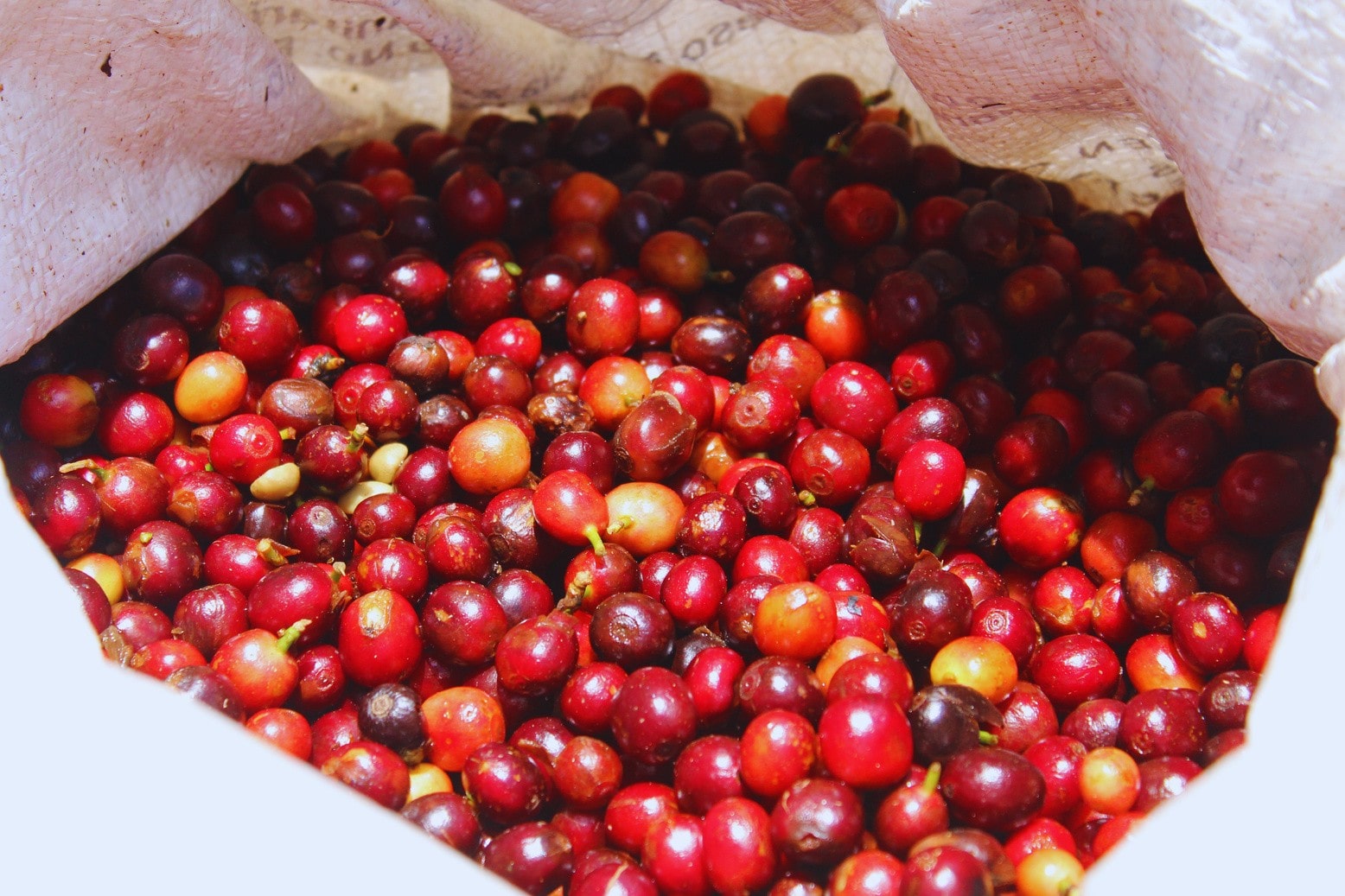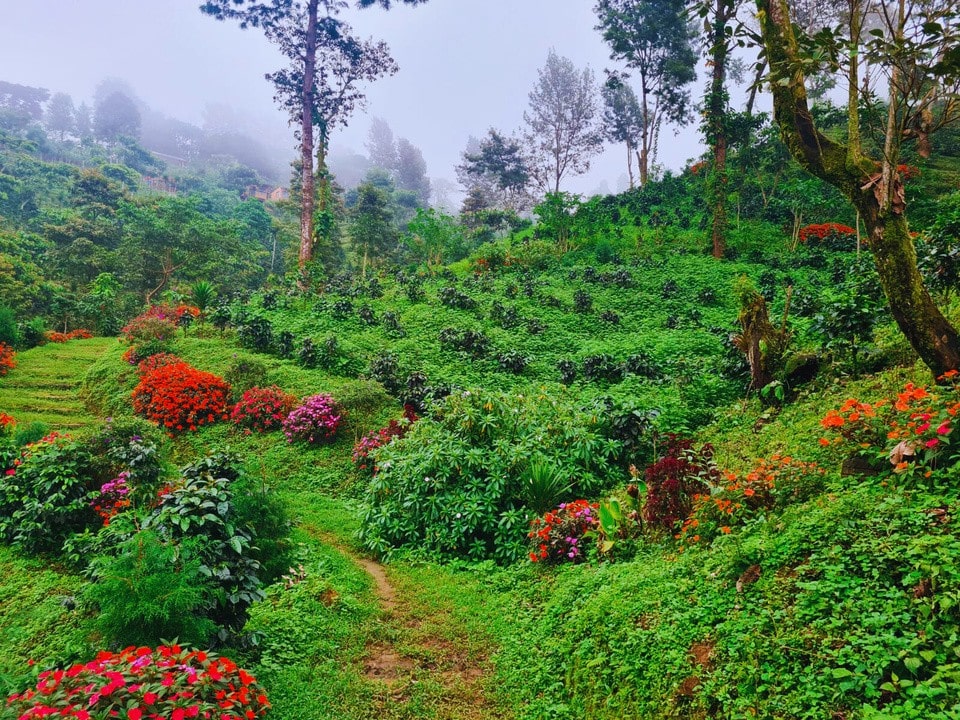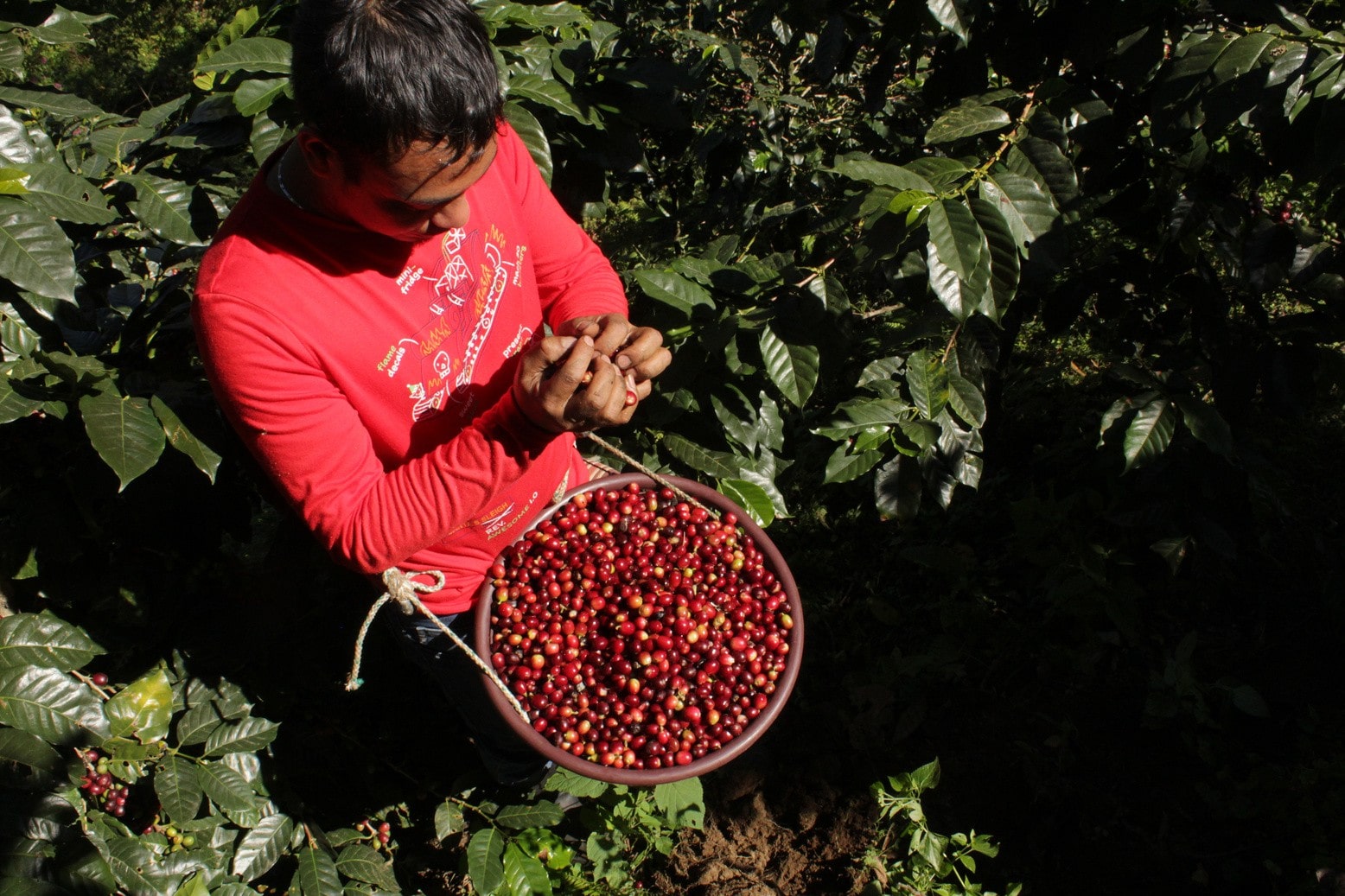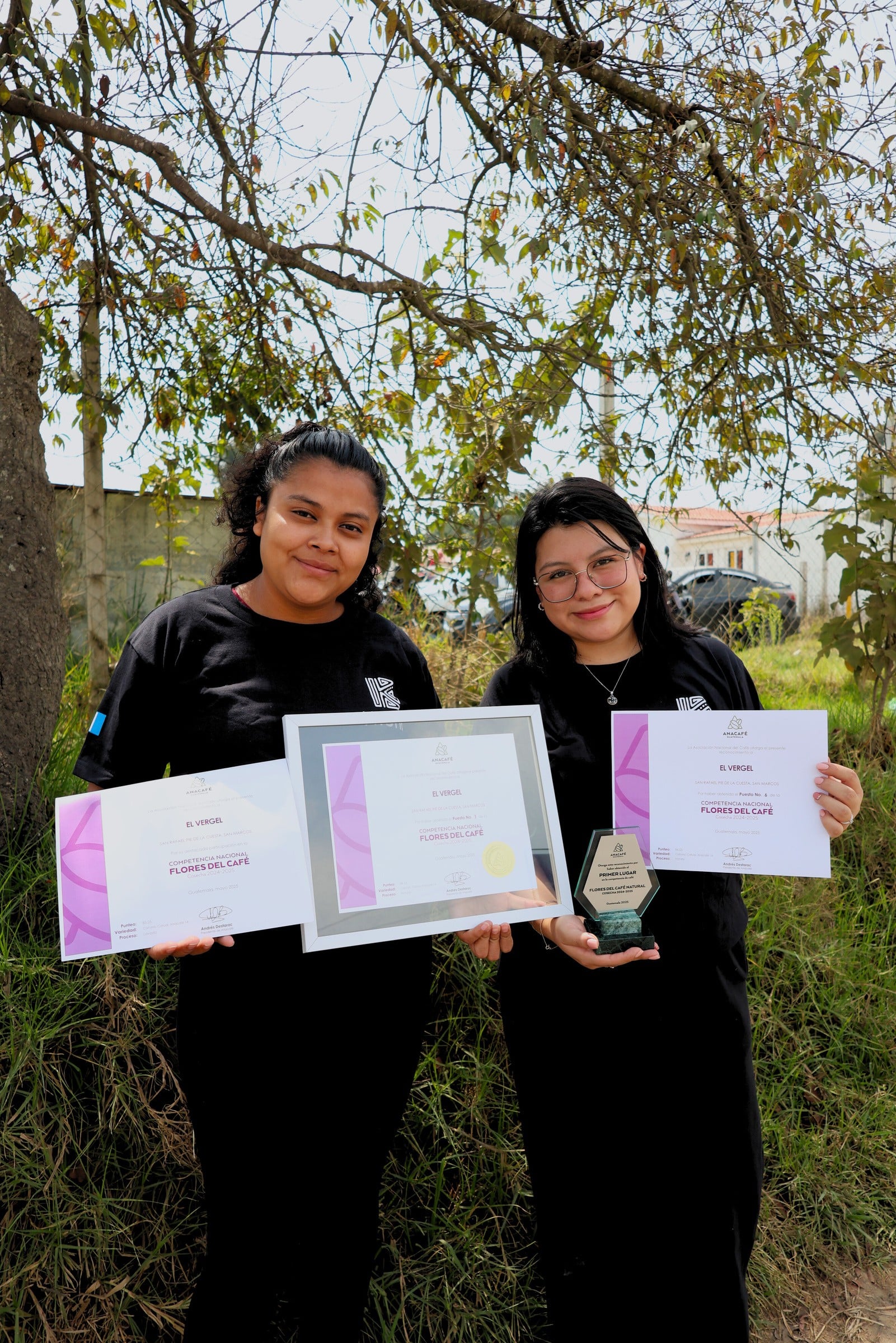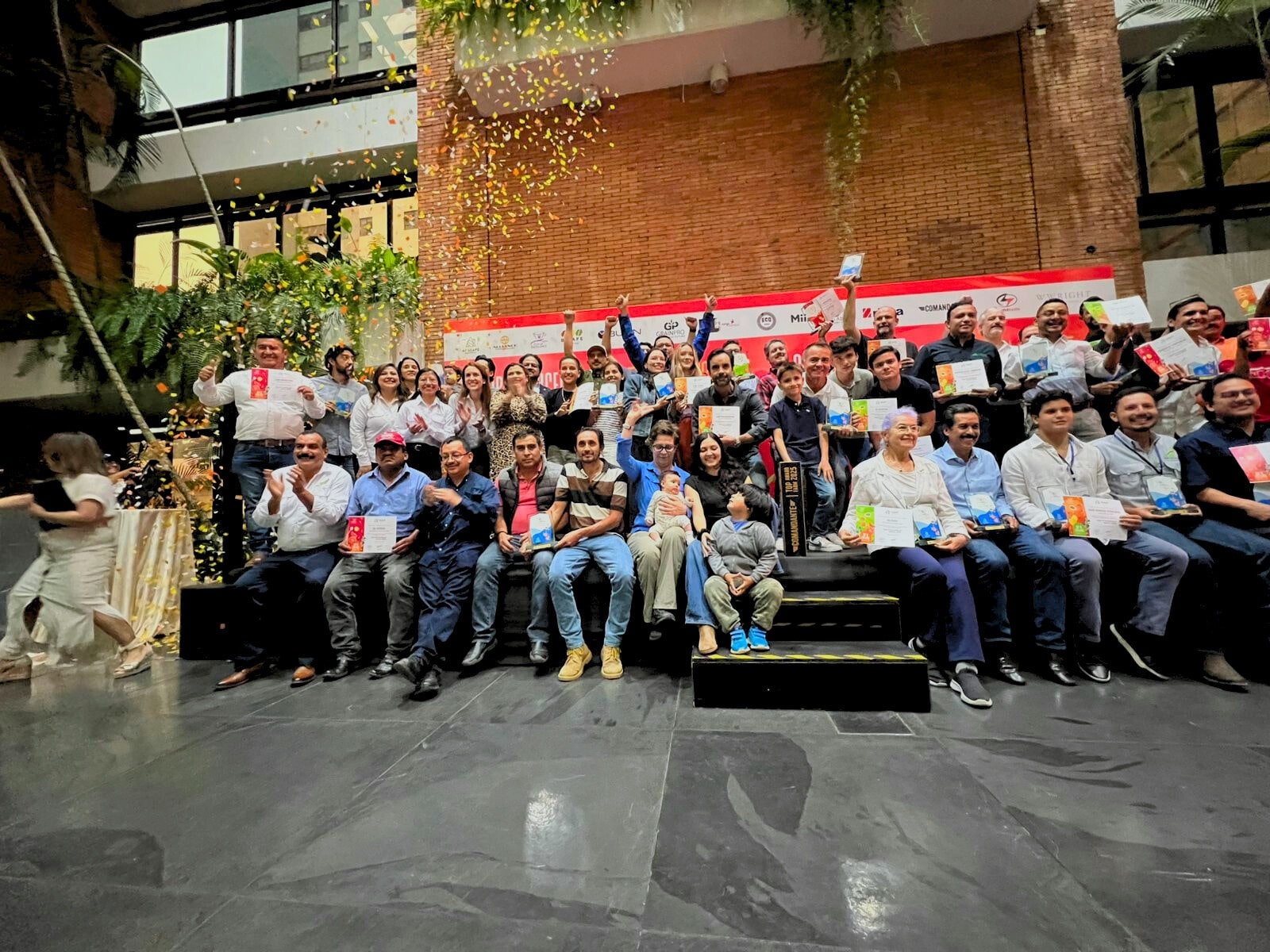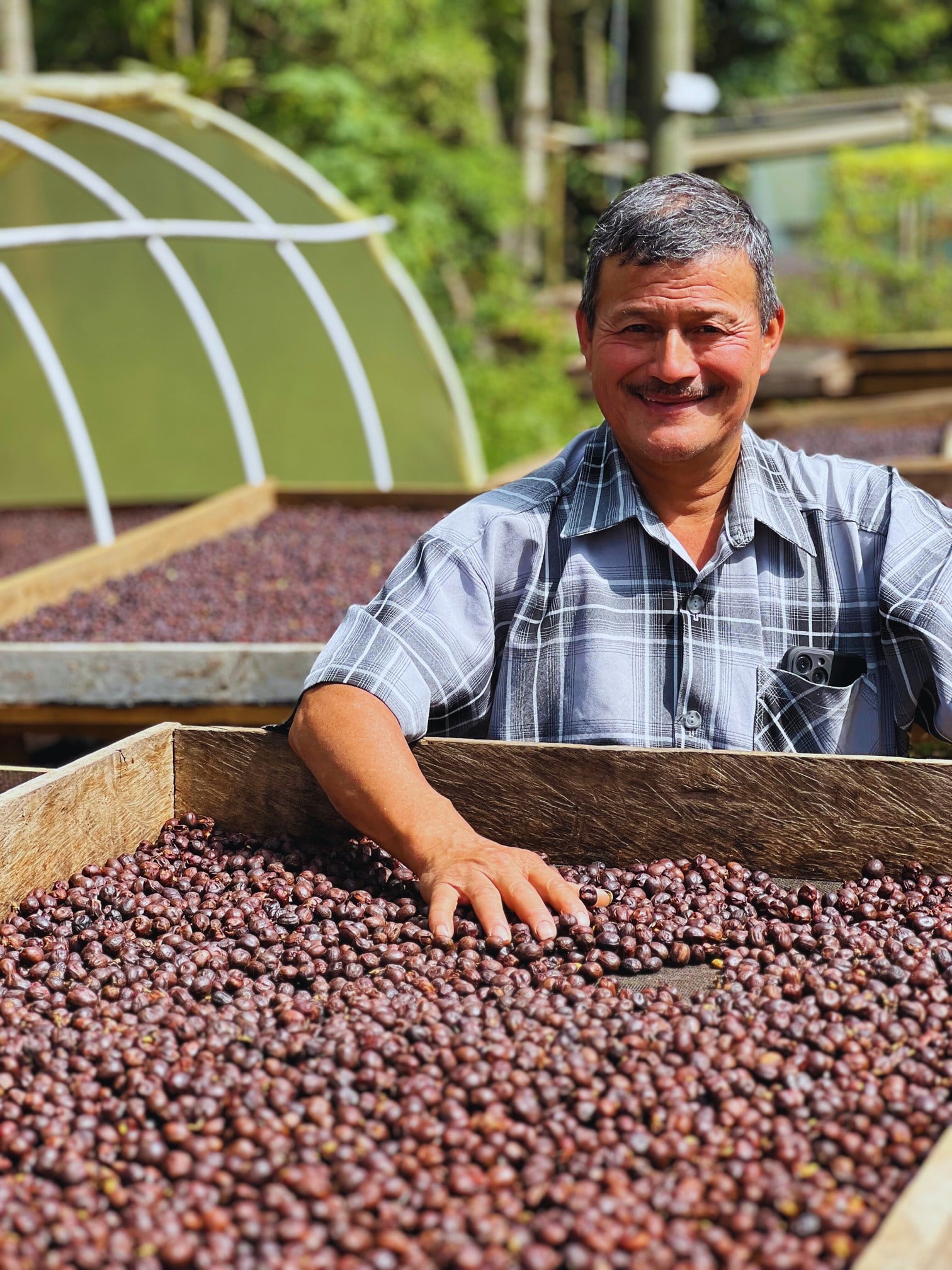Guatemala El Vergel (the Orchard) is an offering from the experimental farm of La Federación Comercializadora de Café Especial de Guatemala (FECCEG). The farm is located in El Vergel Nature Reserve in San Rafael Pie de la Cuesta, San Marcos in southwestern Guatemala. This mountainous area is part of the Tacaná Biological Corridor, which straddles the border between Mexico and Guatemala. This area plays a vital role in protecting biodiversity, facilitating protected movement of fauna and conserving the water resources that are critical to both wildlife and human residents.
FECCEG created El Vergel with the goal of developing a space where they can create sustainable coffee production while conserving the environment at the highest level. Using agroecological practices, coffee cultivation on El Vergel offers opportunity for research, monitoring the performance of varieties and improving sustainable soil management. It is also a location for technical training for producer-members of FECCEG. Overall, El Vergel has become a comprehensive management model where biodiversity conservation is intertwined with agricultural production in a reciprocal and sustainable harmony.
Microlot Specifics
Guatemala El Vergel is cultivated under shade trees such as inga, gravilea, citrus, as well as other native species. This not only regulates temperature and mitigates the stress of direct sunlight on the coffee trees, the complex root systems help conserve the soil, and protect resident wildlife.
The coffee is harvested at peak ripeness and left in the full cherry to dry ferment for 48 hours, stored in plastic barrels with oxygenation control. During this stage, the temperature, pH, and Brix levels were constantly monitored to ensure controlled fermentation. Next, the coffee was dried in solar dryers on pallets, with 4 hours of sun exposure daily, at an average temperature of 22°C. The drying process took a total of 20 days (approximately 80 hours of effective sun exposure) until the optimal humidity was reached. During that time, the cherry was regularly attended to avoid over-fermentation and achieve uniform drying. This batch reflects FECCEG’s commitment to quality, technical control, traceability, and the use of innovative agroecological practices that demonstrate respect for the natural environment.
